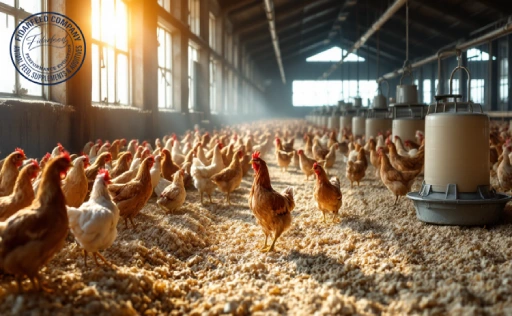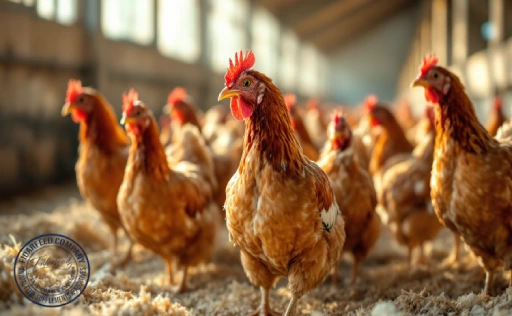Rumen acidosis is a silent yet serious threat to livestock health, affecting productivity, digestion, and overall well-being. Preventing rumen acidosis with probiotic supplements is an effective and natural solution that livestock breeders and feed industry professionals can implement to ensure healthier animals and higher yields. By maintaining the balance of beneficial microbes in the rumen, probiotics help prevent digestive disruptions and optimize nutrient absorption. But how exactly do they work? And what should breeders consider when choosing the right supplement? Let’s dive in.
What Is Rumen Acidosis? Understanding the Causes and Risks
Rumen acidosis occurs when the pH level in the rumen drops too low, leading to an accumulation of acid that disrupts digestion. This condition is primarily caused by high-grain or high-starch diets, which rapidly ferment and produce excess lactic acid. Livestock consuming too many processed feeds, sudden diet changes, or insufficient fiber are particularly at risk.
Learn more about: Probiotic Supplement for Livestock
Mild cases of acidosis may go unnoticed, but in severe situations, symptoms include reduced feed intake, weight loss, diarrhea, bloating, and even lameness. Chronic acidosis weakens the immune system, leading to secondary infections and decreased productivity. Preventing this condition is crucial for maintaining livestock performance and welfare.
How Probiotic Supplements Help Prevent Rumen Acidosis
Probiotics are beneficial live microorganisms that help maintain a balanced microbial population in the rumen. They outcompete harmful bacteria, stabilize pH levels, and enhance fiber digestion. Certain strains of probiotics, such as Lactobacillus, Bacillus, and Saccharomyces cerevisiae (yeast), are particularly effective in regulating fermentation and reducing acid buildup.
Learn more about: Exploring the Key Benefits of Silage for Cow Calf Growth in Modern Farming
By promoting a healthier gut environment, probiotics reduce the risk of rumen acidosis while improving digestion and nutrient uptake. They also support a more stable energy supply, helping livestock maintain consistent growth rates and milk production.
Key Benefits of Probiotic Supplements for Livestock Health
Adding probiotics to livestock diets provides a wide range of benefits beyond just preventing rumen acidosis:
- Improved Feed Efficiency: Probiotics enhance fiber breakdown, allowing animals to extract more nutrients from their feed.
- Stronger Immune System: A healthier gut leads to better overall immunity, reducing susceptibility to infections.
Learn more about: Solving Rumen Health Problems in Sheep with Probiotics
- Reduced Digestive Disorders: Probiotics help prevent not only acidosis but also bloating, diarrhea, and other common gut issues.
- Better Growth and Production: Cattle and sheep fed with probiotics often show higher weight gain and improved milk yield.
- Lower Use of Antibiotics: By naturally strengthening gut health, probiotics reduce the need for medical interventions, supporting antibiotic-free livestock management.
Choosing the Right Probiotic Supplement for Your Herd
Not all probiotic supplements are created equal. To ensure optimal results, breeders should consider the following when selecting a probiotic:
- Strain Selection: Look for strains specifically researched for livestock, such as Saccharomyces cerevisiae or Lactobacillus acidophilus.
- Viability and Stability: The probiotics should be stable under storage conditions and remain viable when ingested.
Learn more about: Improving Milk Production with Probiotics: Focus on Rumen Health
- Compatibility with Feed: Some probiotics work better with specific diets. Choose one that complements your herd’s feeding regimen.
- Scientific Backing: Always opt for products that have been tested and supported by research.
- Reputable Suppliers: Choose a brand known for quality control and reliable formulations.
Best Practices for Feeding Probiotics to Prevent Acidosis
To maximize the benefits of probiotics, proper feeding practices should be followed:
- Introduce Gradually: Start with small doses and increase gradually to allow adaptation.
- Use Consistently: Daily supplementation ensures steady microbial balance in the rumen.
- Pair with a Balanced Diet: Probiotics work best when combined with a high-fiber diet and controlled grain intake.
Learn more about: Save Big on Animal Probiotics: Wholesale Discounts Available
- Monitor Animal Response: Observe feed intake, digestion, and overall health to assess effectiveness.
- Follow Manufacturer Guidelines: Stick to the recommended dosage for optimal results.
Common Myths and Misconceptions About Probiotic Use in Livestock
Despite their proven benefits, several myths persist about probiotics in livestock management:
- “Probiotics Replace Good Nutrition”; While probiotics support digestion, they are not a substitute for proper diet formulation.
- “Probiotics Only Benefit Sick Animals”; Probiotics are preventive, not just therapeutic. Healthy animals also gain from their use.
- “All Probiotics Are the Same”; Different strains serve different functions. It’s important to choose the right one for your herd.
- “Probiotics Work Instantly”; Consistency is key. It takes time for the beneficial bacteria to establish and show results.
Final Thoughts: A Proactive Approach to Rumen Health
Preventing rumen acidosis is essential for maintaining healthy, productive livestock. Probiotic supplements offer a natural, effective way to support rumen function, improve digestion, and enhance overall animal well-being. By choosing the right probiotic, following best feeding practices, and maintaining a balanced diet, livestock breeders can significantly reduce the risks associated with acidosis.
Have you used probiotics in your herd? What has been your experience? Share your thoughts and questions in the comments below!








